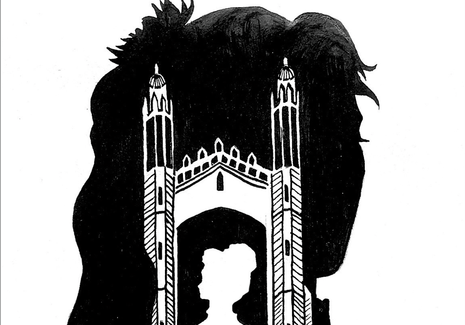The living legacy of misogyny at Cambridge
The history of misogyny at Cambridge is central to the contemporary experiences

On 21 May 1897, an unprecedented swarm of men, thousands strong, gathered along King’s Parade, latent violence simmering in the air.
In the aftermath of a historic vote to determine whether the University of Cambridge should award degrees to women, an infamous riot broke out. Intent on fortifying the ivory tower ranks of patriarchal privilege, the mob burned effigies of women, hurled rotten eggs, and fired handheld rockets.
Ultimately, this 1897 move to award degrees to women was defeated by a landslide majority.
A second vote on whether women should be offered degrees was held in 1921. It was again met with vehement hostility and defeated: this time, a mob of 1,400 men attempted to storm the gates of Newnham College and placed it under violent siege.
These protests reveal an uncomfortable reality about Cambridge’s ongoing and intimate relationship with patriarchy. The living legacy of misogyny at Cambridge actively informs how women experience our education, as well as how knowledge is developed and consumed at our university.
“the education we receive at Cambridge is anything but neutral”
As a postgraduate student in gender studies, the irony of studying feminism at an institution with such a formidable history of gendered discrimination is not lost on me. Indeed, stepping into a university environment so historically steeped in sexism is a powerful reminder that the education we receive at Cambridge is anything but neutral.
Today, while formalized equality is offered to people of all genders at Cambridge, gender-based discrimination continues to line the infrastructure of this institution and inform campus culture. In 2014, the ‘Cambridge Speaks Out’ survey found that 77% of student respondents had experienced a form of sexual harassment. In 2019, the university received 173 complaints of sexual misconduct in just nine months. In 2020, over 500 current and former students signed an open letter from the Cambridge University Students’ Union Women’s Campaign that implicated the university in a “complete failure” to navigate sexual misconduct complaints. They demanded that colleges be stripped of their powers to investigate these complaints against their own members. This still has not been enacted.
It is vital that we understand ongoing sexual violence at Cambridge not as an aberration… Instead, it is a contemporary demonstration that the system is operating exactly as it was always intended to – to keep women out.
The historical trajectory of women’s entrance into Cambridge has been far from linear. In 1869, 660 years after Cambridge was founded, Girton College – the first women’s college not only at Cambridge but in all of England – was established. However, this new opportunity for women to study was limited; women students were barred from taking exams and needed permission as well as a chaperone to attend lectures.
Ultimately, Cambridge was the last university in the country to deny women the right to receive a degree. While other institutions across the United Kingdom began changing their discriminatory policies beginning in 1878, it was only in 1948 that Cambridge finally awarded its first degree to a woman – an honorary degree to the Queen Mother.
“Ultimately, Cambridge was the last university in the country to deny women the right to receive a degree.”
In 1988, the first class of women matriculated at Magdelene College, the last college at Cambridge to accept women students. 91 years after the 1897 riot, male students protested this decision by flying the college flag at half-mast and wearing black arm bands.
These men mourned the rightful redistribution of power as if a loved one had passed: the pinnacle of male entitlement.
While patriarchal thought at Cambridge is no longer expressed through outright riots and protests, systemic sexism continues to hang over the dreaming spires of our university like an early morning mist. We cannot move through these spaces without breathing this air; we cannot absorb our education without appreciating the conditions that structure its dissemination.
Dr. Sandra Harding, a celebrated feminist philosopher, offers that all knowledge bears the fingerprints of the people who produce it. We lace our fingerprints over everything we touch; while often invisible at first glance, these fingerprints are ever-present and unmistakable. At a university so renowned for its world-class production of knowledge, it bears understanding that this knowledge is not impartial from the interests of the inherently patriarchal institution that sponsors its production.
Women at Cambridge continue to navigate everyday gendered double standards. Cultural biases faced by women in STEM and Dr. Charlotte Proudman’s recent experience navigating sexist assumptions at King’s College are sharp reminders that women are still perceived not to belong in academic settings. We are not immune from the impacts of patriarchy simply because we have the luxury of living in a time when overt gender discrimination is no longer legal.
While it is worth celebrating and appreciating the work of feminist forebearers who fought for their access to education, we must not forget that this institution was only ever intended to teach and serve the interests of wealthy white men. It is incumbent upon us – as students and as researchers – to recognize and appreciate how patriarchy informs the culture, traditions and education at Cambridge.
Excavating the voices of marginalized women from the stonework of our university is one way to make the fingerprints of patriarchy visible. Witnessing the histories that pave the cobblestones of Cambridge streets can remind us that women’s access to these spaces cannot be taken for granted.
We are still living through the non-linear progression of unearthing and undoing structural sexism at Cambridge, and we need a collective commitment to gender justice to continue the age-old project of dismantling gender-based discrimination.
 News / Cambridge students set up encampment calling for Israel divestment6 May 2024
News / Cambridge students set up encampment calling for Israel divestment6 May 2024 News / Cambridge postgrad re-elected as City councillor4 May 2024
News / Cambridge postgrad re-elected as City councillor4 May 2024 News / Proposed changes to Cambridge exam resits remain stricter than most7 May 2024
News / Proposed changes to Cambridge exam resits remain stricter than most7 May 2024 News / Some supervisors’ effective pay rate £3 below living wage, new report finds5 May 2024
News / Some supervisors’ effective pay rate £3 below living wage, new report finds5 May 2024 Fashion / Class and closeted identities: how do fits fit into our cultures?6 May 2024
Fashion / Class and closeted identities: how do fits fit into our cultures?6 May 2024






